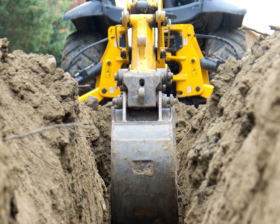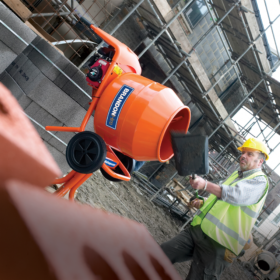
Use code BUILD for 20% off
Book here!
Use code BUILD for 20% off
Book here!The first question you need to ask about a tool is: is it fit for purpose? Every site needs good, all-purpose tools, but if you’re investing for a specific job you’ve got to think it through. There’s no point buying the biggest drill possible if you’re going to be working on ceilings, as the weight will just tire you out, while a drill that’s not tough enough for the job in hand is just a waste of time.
Most injuries to do with power tools are down to people using them inappropriately for jobs they weren’t designed for, so, regardless of whether you’re hiring or buying, make sure you have the right tool for the job, that you know how to use it properly and wear the right protective equipment.
Consider the practicalities of power on site, as there are numerous power sources for tools, including gas-powered, petrol-driven, air tools for use with compressors, corded or battery operated. For most site use, the majority of self-builders will stick with a combination of corded and battery operated tools, with the power offered by corded being offset with the versatility of battery.
A useful rule of thumb is that the more power a tool has, the heavier it will be. Traditionally, the more powerful tools were corded, but developments in batteries continues apace, and these days many leading manufacturers offer battery-powered versions that give their corded versions a good run for the money. Battery powered are especially useful for sites without electricity and several demands on the generators, but you will need to make provision for charging spare batteries.
Nickel Cadmium (NiCad) The original battery choice, NiCad batteries lose their charge if not used, and compared to the modern contenders are large and heavy. At the moment they’re still relatively cheap to produce, can be recharged many times over, and perform in extreme temperatures.
Nickel Metal Hydride (NiMH) Lighter than NiCad, NiMH have 2-3 times the capacity of the equivalent NiCad battery giving them a longer running power, but they are extremely temperature sensitive. They also have a much shorter recharge life than NiCad, although the fact that they run for longer balances this out.
Lithium Ion (Li-Ion) Much smaller than the other batteries, compact and lightweight, Li-Ion are more powerful and hold their charge for longer than other batteries, with no battery memory and no self-discharge. Electronic Cell Protection (ECP) also offers longer service life. Lithium ion has become the standard choice for most portable power tools.
Professional tools are tougher, higher spec tools that will have a longer life as they are designed for continuous use, rather than the ‘light occasional’ that is the focus of the DIY tool market. Many companies offer both ranges, such as Bosch. What you need the tool for and how much you will be using it are good indicators of when it’s worth paying the premium for a tool that will be a workhorse.
You may think you can save money by steering clear of the major brands in favour of cheaper alternatives, but for site work this is rarely a long-term saving. Major brands, such as Bosch, spend a lot of money each year honing and developing their tools to make them tougher, more efficient and finely balanced.
A no-name brand tool, such as a drill-driver, may look like the branded version, but chances are the branded tool will be more refined with more user options – offering better and more comfortable use and longer life, as well as featuring higher-quality materials in its composition. Motors, in particular, are prone to fail in cheap tools.
What’s more a high-quality tool will offer better efficiency, with more of the power being disbursed to the output, rather than being lost on the way through poor design. Simply put, good quality tools are safer and more efficient to use, and will save you timeand discomfort while using them. They’ll last longer, too.
With some professional tools, you’ll only need them once in the average life of a site, but having a tool that’s custom designed for a job can save time and a whole lot of effort. In which case it pays to work out how much the tool costs, plus any resale value, and how much time it will save you. Chances are that when you compare this to the hire cost for the time you expect the job to last then you’ll be better off hiring the tool – and at least that way you don’t have to worry about it failing and leaving you with a problem. A drywall screwdriver may not warrant you buying the tool, but it will save you time and money if you’re doing this work yourself.
There are many specialist power tools, such as metal saws and a range of carpentry tools, like biscuit jointers and routers, that just aren’t that relevant to a self-build, and these should normally be hired if required – unless you plan to use them after the build is completed, or you’re a fan of woodworking.
When it comes to voltage on site, Eric Streuli, training manager for Bosch Power Tools explains why the UK is different from Europe: “Construction sites in the UK use 110V power tools, so most professional power tools operate at this voltage, while consumer models run at 230V. The 110V system reduces the ‘live’ potential of the conductors in the cable to a harmless 55V.
“Some companies actually specify the use of only 110V tools as mandatory in their conditions of employment, but in the majority of the EU 230V tools are used on site without problems. The use of 110V tools is not enforceable under Health and Safety law, so 230V versions can be legally used for your build. If you choose to do this, fit a Residual Current Device (RCD) at the source of the 230V supply. This will offer protection against electric shocks – be sure to test it daily.”
Main image: DeWalt’s XRP cordless tools offer the flexibility of interchangeable Lithium-ion batteries for use across the range


Comments are closed.